Outsourcing fulfillment to a 3PL (third-party logistics service) partners you with pros on one of the most critical aspects of your business, allowing you to focus on marketing, growth, and customer satisfaction. A 3PL is in high demand for eCommerce brands because the business model of consumer products companies handling many or all operations in-house isn’t always the most productive, particularly when it comes to eCommerce fulfillment. Many eCommerce businesses grow while operating on a shoestring, and find that a 3PL can save both money and time.

A 3PL provider can store your inventory; pick, pack, and ship your products; and provide a vital link between your manufacturing operations and your end customers. When your order fulfillment operations run smoothly, your customers are happy and your business grows. It’s not an exaggeration to say that excellent fulfillment is the key to success for eCommerce companies.
Before you start working with a third-party logistics company, it’s essential to understand what a 3PL is. In this post, we detail how to integrate third-party logistics into your operations and how to find the best 3PL partner. An excellent place to start is by checking out Red Stag Fulfillment’s 3PL services to see if they’re right for your brand.
What Is Third-Party Logistics?
Third-party logistics is a service that receives shipments of stock, stores and tracks warehouse inventory, and picks and packs orders to ship to your customers. Most 3PL warehouses serve many clients, sending orders for multiple eCommerce companies.
A 3PL can also be called a fulfillment company, fulfillment warehouse, or fulfillment center. Companies that provide 3PL services offer the same services as order fulfillment companies. These services generally include:
- Warehousing
- Inventory management
- Picking and packing
- Shipping and receiving.
Additional services offered by some 3PL providers include:
- FTL and LTL freight shipping
- Freight forwarding
- Kitting
- Reverse logistics (returns).
A third-party logistics company provides eCommerce fulfillment services, taking logistics operations off your hands.
Each 3PL services company specializes in different types of fulfillment and warehousing. Some are equipped for cold fulfillment, with warehouses that can store and ship food products that need refrigeration. Other 3PL companies are prepared to store and ship hazardous materials, apparel, high-SKU-count product lines, low-SKU-count product lines, etc. Red Stag Fulfillment is one of the top third-party logistics providers for heavy, bulky, and high-value products.

What Is 3PL?
3PL stands for third-party logistics, described above. The term third-party logistics is often also used interchangeably with order fulfillment. A third-party warehouse provides a full range of eCommerce fulfillment services. This can include warehousing, order processing, and shipping and receiving. Many 3PL warehouses provide other services. These can include customer support, returns processing, and customization.The 3PL business model is the most common type of outsourced logistics company. There are other types of logistics companies, such as fourth-party logistics providers, which act as supply chain operations consultants.
Third Party Logistics (3PL) Basics
Third-party logistics providers manage inbound and outbound transportation for their clients, as well as warehousing. Most 3PL companies own or lease warehouse space where they store merchandise for their clients, pick orders, and ship packages. Most 3PLs don’t own a fleet of delivery trucks, though some (most notably Amazon) provide last-mile transportation services as part of their end-to-end logistics services.
Third-party refers to the fact that you’re outsourcing your order fulfillment. You don’t own the warehouse, hire the staff, or manage the operations. Instead, you rent storage space for your products in a large warehouse that stores products for multiple companies. Warehouse employees receive your products and place them into inventory. They pick items from shelves to fill orders and pack them securely for shipping. The 3PL works with various carriers to deliver orders to your clients.
Third-party logistics warehouses are designed to maximize speed and efficiency. As your business grows, your 3PL can handle the extra volume, and you can expand your capacity without hiring additional staff. A 3PL can work with you on ways to get lower shipping rates and faster delivery times. When you use a 3PL company for your eCommerce fulfillment, you benefit from the experience and focus of supply chain professionals.
Let’s delve into the specifics of how outsourced fulfillment works with your business.
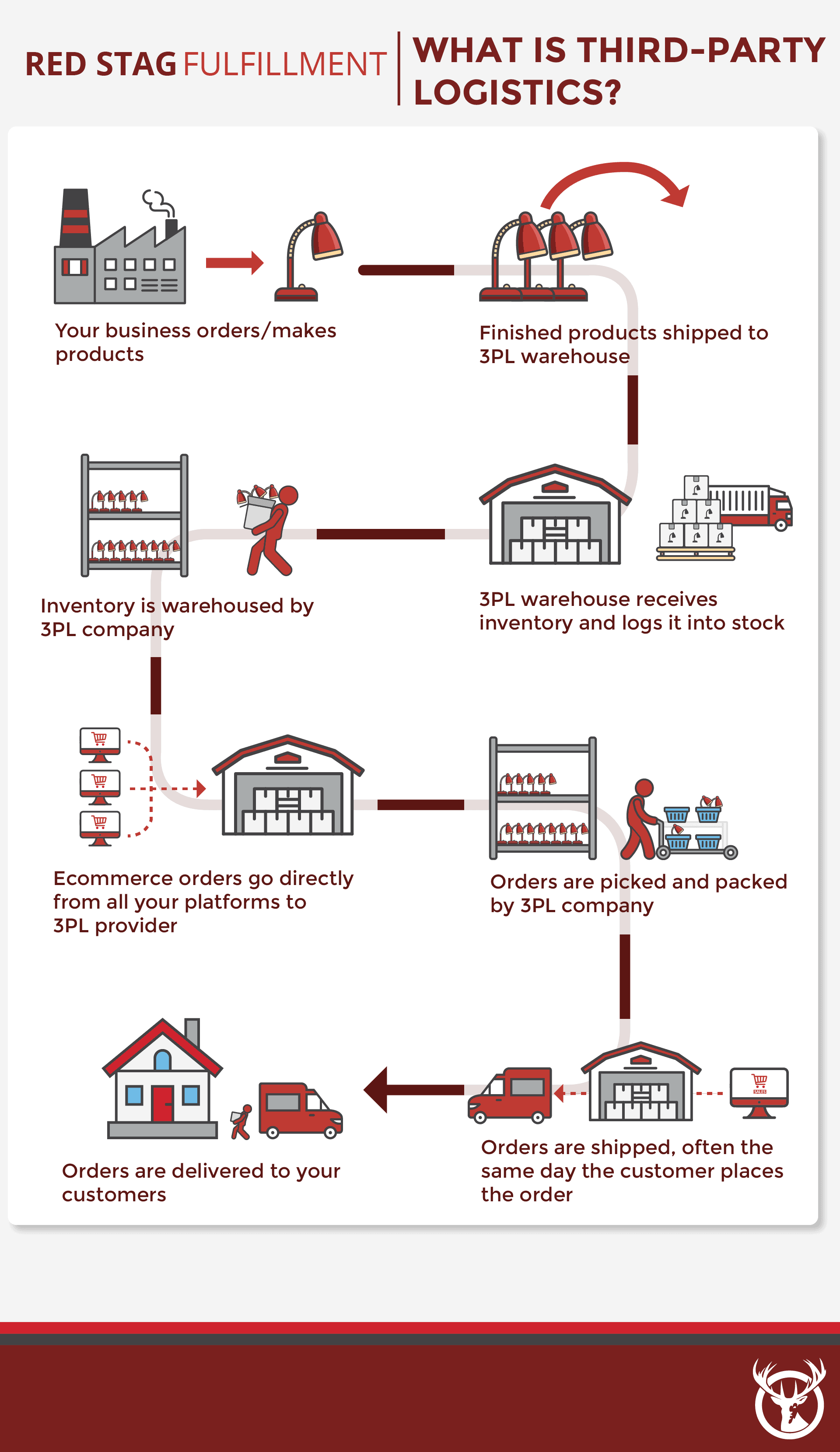
The Third-Party Logistics Process
When you outsource your fulfillment, your products ship directly from the factory to the 3rd-party logistics warehouse. Once your inventory arrives, the fulfillment company can provide a range of value-added services in addition to basic fulfillment. Here are some of the most important elements of the 3PL process.
ECommerce Platform Integration
Most eCommerce businesses depend on multichannel selling to survive. To support this, your fulfillment warehouse needs strong IT. Fulfillment warehouses have warehouse management systems (WMS) that integrate seamlessly with many eCommerce platforms. Your provider should support all your sales channels or be able to create a custom API to connect directly to your shopping cart. In addition, you should be able to view and track the progress of your orders in real time online, via a dashboard.
FTL And LTL Freight Shipping And Receiving
Full-truckload (FTL) and less-than-truckload (LTL) freight can be essential tools to save you money on freight. This is particularly true if you often ship large orders to commercial customers or wholesale orders to retailers. You can also use freight services to ship your products between warehouses or to a distribution point closer to your customers.
Residential LTL freight is an excellent option for delivering oversized merchandise, such as a bed in a box or a bicycle, to your end customer. Using pallets to secure the items for shipping, LTL freight opens new avenues for delivering large products.
Some outsourced logistics companies have the capacity to guide you through this process, arranging FTL or LTL loads and processing incoming truckload freight. Your 3PL can also help you find the best deals and the correct service level to optimize your freight shipping.
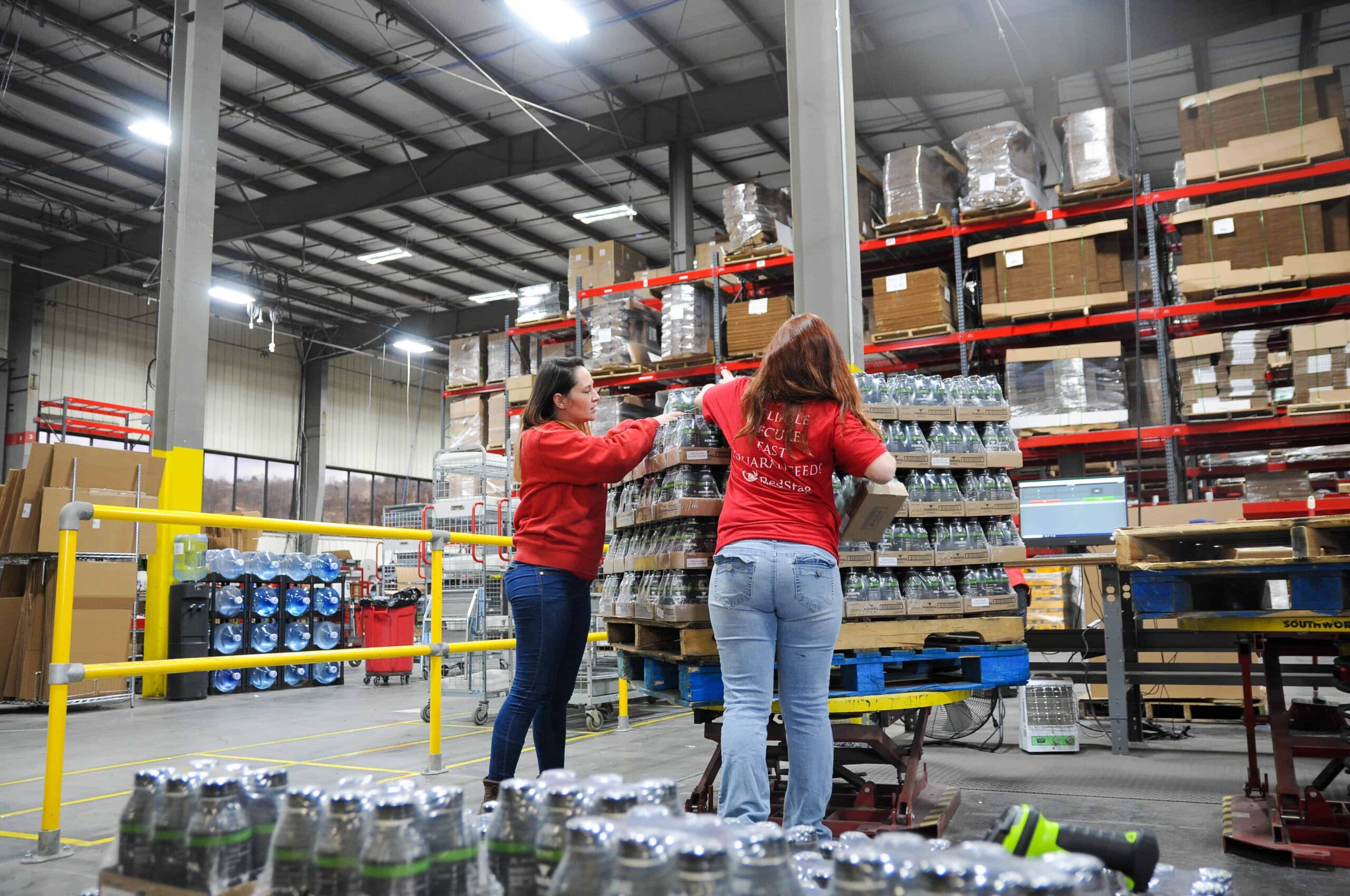
Inventory Management
When you work with a third-party logistics company, you no longer have to go it alone because your logistics partner has valuable experience with inventory management. Your account rep can apply lessons learned from working with many eCommerce companies to help you manage your stock. Reach out for advice on restocking levels, supply chain management, and ideal seasonal inventory levels.
Picking, Packing, And Shipping
Pick, pack, and ship services are the core of order fulfillment. When your customer places an order through one of your sales channels, it goes directly to your fulfillment warehouse. There, a picker finds the items for the order on the shelves. Then a packer selects the perfect box — not too big, not too small — and packages the order. The packer also applies the shipping label. Finally, the shipper ensures the order gets picked up by the correct carrier as soon as it’s ready.
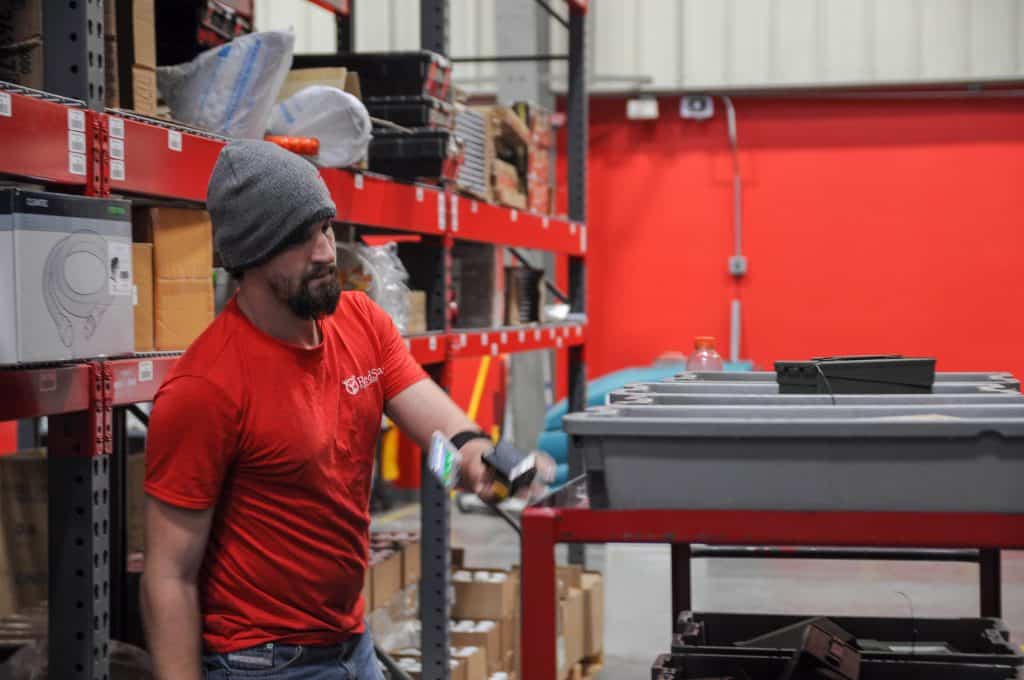
Same-Day Shipping
Some third-party logistics providers offer same-day shipping, where your customer orders are picked, packed, and shipped on the same day they are received. Same-day shipping gets your orders to your customers faster, and faster delivery leads to more satisfied customers.
For example, Red Stag Fulfillment offers two levels of same-day shipping service. One has a 3:00 pm cutoff; the other will ship orders that arrive as late as 5:00 pm on the same day.
Reverse Logistics
Reverse logistics, or returns, are an essential part of your fulfillment process. Products that are sized, such as clothing and shoes, have much higher return rates than the industry average. Many eCommerce fulfillment warehouses will accept and process returns, giving you professional assistance for this critical supply chain function.
The reverse logistics process includes examining returned items to assess whether they’re damaged or suitable to be returned to stock. Efficient reverse logistics can decrease the time it takes to make undamaged products available for purchase again.
Your return rate depends on several factors, including the type of merchandise you sell, but the core competencies of your 3PL can have a big impact on returns. Service providers with low fulfillment error rates help eCommerce companies keep return rates low.
3PL Services Vs. Drop Shipping
A drop shipping eCommerce business model is one way to outsource fulfillment. There are significant differences between drop shipping and third-party logistics with a traditional business model. Here’s what you need to know to understand whether drop shipping is right for your business.

Is 3rd-Party Logistics The Same As Order Fulfillment?
Third-party fulfillment may also be called order fulfillment or eCommerce fulfillment. In this business model, you must front the money to purchase inventory before you make your first sale, but you have cost savings after the sale because your cost of goods sold is lower than in the drop shipping model.
When you use 3rd-party logistics, your supply chain will look like this:
- You source the products that will be sold in your eCommerce shop.
- You invest the capital to purchase the raw materials and/or products before you make sales (unless you take pre-orders — by crowdfunding, for example).
- Your merchandise ships to the order fulfillment warehouses that you have contracted with for your third-party logistics.
- You put your available inventory in your online store or eCommerce platforms.
- Customers place orders online.
- Online orders flow from your sales platforms to your 3PL warehouses.
- Experienced warehouse workers pick, pack, and ship your orders from the stock you have already paid for, which is stored at the warehouse.
- Delivery companies take orders to your customers.
Benefits Of Third-Party Logistics
There are several benefits of the traditional 3PL model.
- Lower cost of goods sold. When you purchase products up front, you pay the wholesale price. The more you buy, the lower your cost per item and the higher your profit margins.
- Greater flexibility in product sourcing. When you use an eCommerce fulfillment business model, you can source products from more than one manufacturer and design your own custom goods. Orders that include products from multiple suppliers can ship in the same box, saving on shipping costs and improving customer experience.
- More control over your logistics operations. You choose an order fulfillment partner that provides the level of service your customers expect.
- Faster order fulfillment. You can pick a third-party logistics service with warehouse locations to deliver your orders quickly.
Easier returns processing. The third-party logistics warehouse that shipped your products can provide customer service and seamlessly process returns, improving customer satisfaction and letting you put products back into inventory quickly.
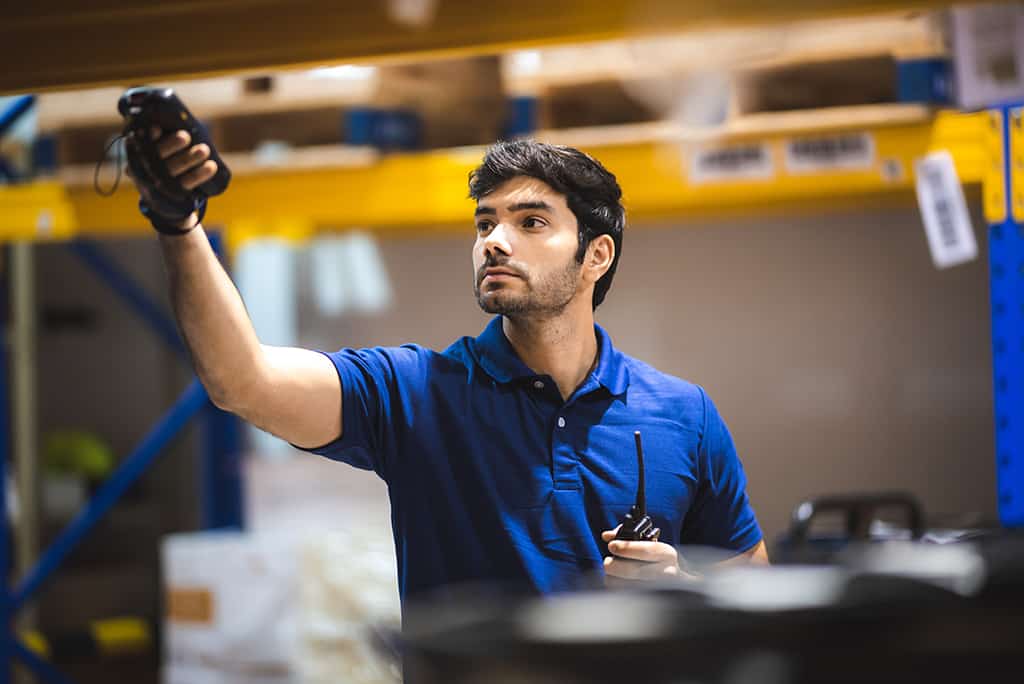
What Is Drop Shipping?
Drop shipping is an eCommerce business model where you list SKUs for sale online but only purchase inventory after a customer makes a purchase. The drop ship business model requires little or no upfront capital investment, so it can be a great way to jumpstart a new venture on a shoestring. The downside of this model is that you’ll pay a higher wholesale price for your products, so your profit margins are smaller.
Here’s the structure of a drop shipping supply chain:
- You don’t own or control the inventory you sell, instead contracting with drop shipping manufacturers or distributors.
- You place the items for sale in your eCommerce shop.
- Customers order from your online store.
- You relay orders to the drop shipping supplier and pay for the products your customers order.
- The supplier ships items directly to your customers.
Benefits Of Drop Shipping
Drop shipping has advantages for some eCommerce businesses.
- Low capital outlay. You can start a new business and offer a large range of products with a small investment using drop shipping. Your only cost is setting up your eCommerce store.
- Low risk. You only pay for the products customers want, so you don’t end up holding stock you can’t sell or have to mark down. Drop shipping can also be a way to do market research and refine your product line.
Low overhead. You don’t have to pay for warehouse space to store your inventory. Inventory stays with the drop shipping supplier until you make a sale.
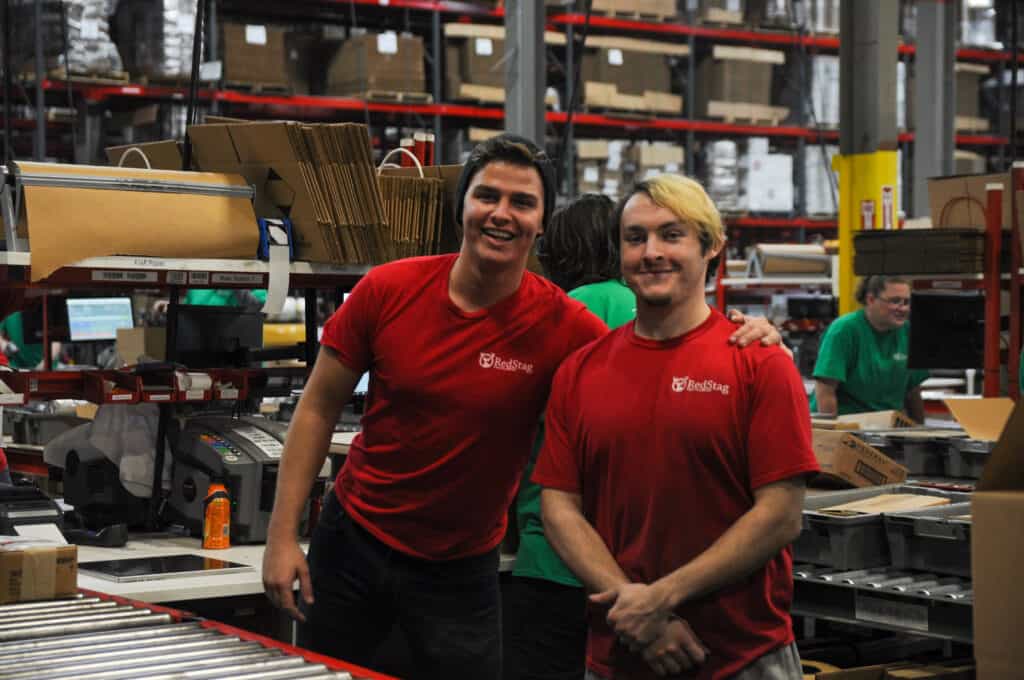
Will Your Business Benefit From Third-Party Logistics?
Outsourced fulfillment services help eCommerce businesses grow and thrive. Here are some of the benefits your business can get from using a 3rd-party logistics provider:
- Your business doesn’t have to lease warehouse space. When using third-party logistics, you can more easily increase or decrease the warehouse space your products occupy, saving money on storage and making expansion easier.
- Professionals provide top-notch fulfillment for your customer orders.
- You place your products closer to your customers, since you can choose your warehouse locations. That means faster delivery and lower shipping costs.
- Fulfillment warehouses are volume shippers and may have reduced shipping prices with major carriers, so your 3PL partner may be able to save you money on shipping.
- You gain access to value-added services that can enhance your business, including kitting, package consolidation, and freight shipping.
- You gain an expert partner. Your third-party logistics provider can help you choose the best packaging, shipping, inventory management, and reverse logistics options for your company.
You free yourself and your staff to focus on your business’s core competencies, allowing you to focus on marketing and increasing sales.
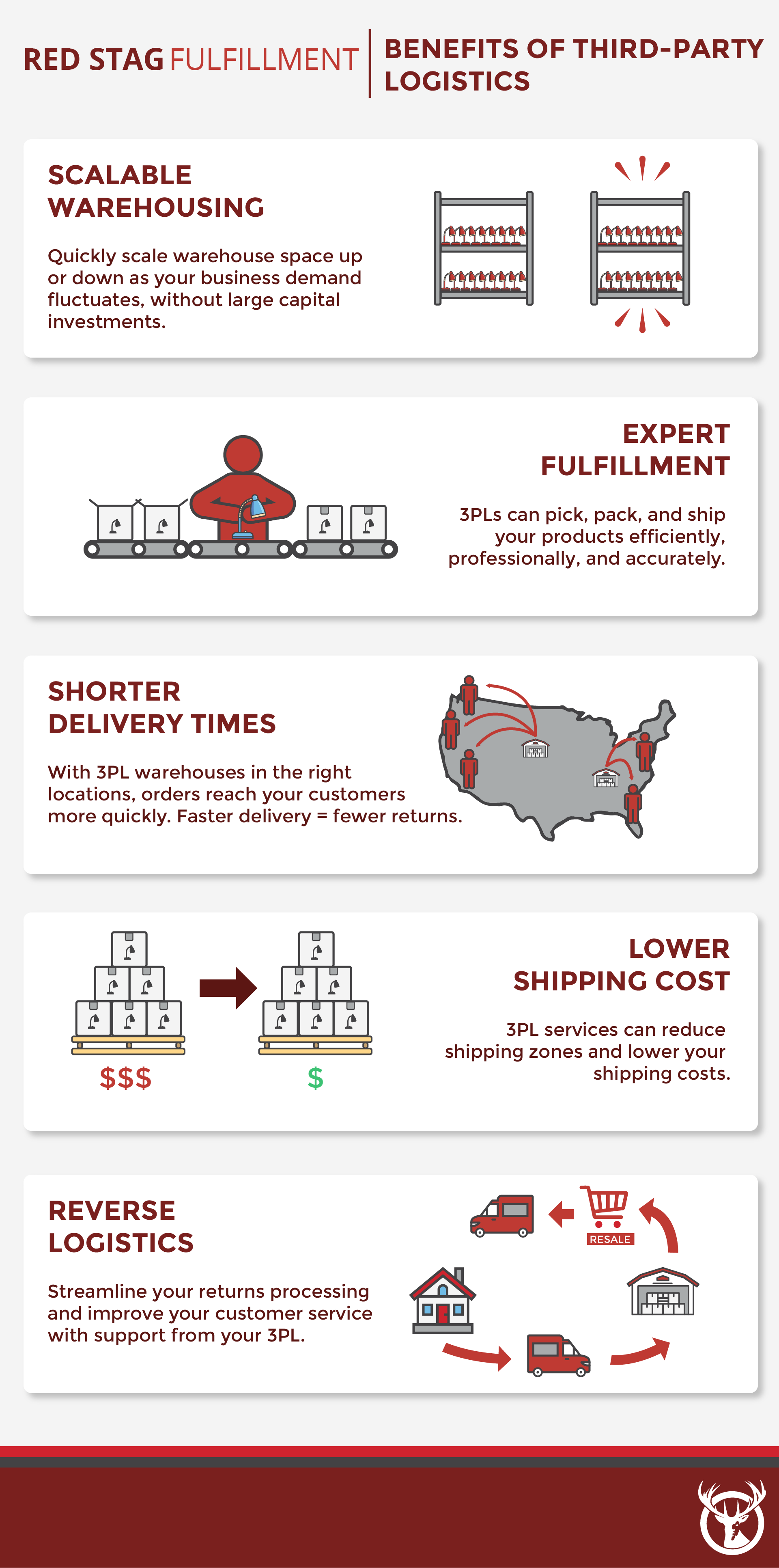
5 Tips To Help You Find The Best 3PL Services Company For Your ECommerce Business
If you’ve decided to work with a third-party logistics company, the next step is to find the right fit. Every fulfillment company is different. Even an excellent 3PL may not be the right choice for your business.
The best 3PL company for your business will be one that easily integrates with your eCommerce platforms and has experience shipping products similar to yours.
Here are several factors to consider in your search for the best eCommerce fulfillment services company.
3PL Services Expertise
Expertise is important. Every fulfillment warehouse is engineered to handle certain types of shipments. For example, warehouses built to accommodate oversized products, like the ones Red Stag Fulfillment operates, have extra wide aisles, use a heavy-duty conveyor belt, and stock a sturdier grade of shipping boxes.
If your products are outliers in the warehouse, you won’t get the level of service you need. In fact, you could end up with damaged goods because of improper packaging. Make sure you work with an order fulfillment service that understands your products.
3PL Warehouse Locations
Shipping from your own warehouse can give you a feeling of control. However, unless your customers are clustered close to your business location, this probably puts you at a disadvantage in terms of shipping costs and delivery times. Having a small number of fulfillment warehouses in the right locations positions your products close to all your customers for national fulfillment.
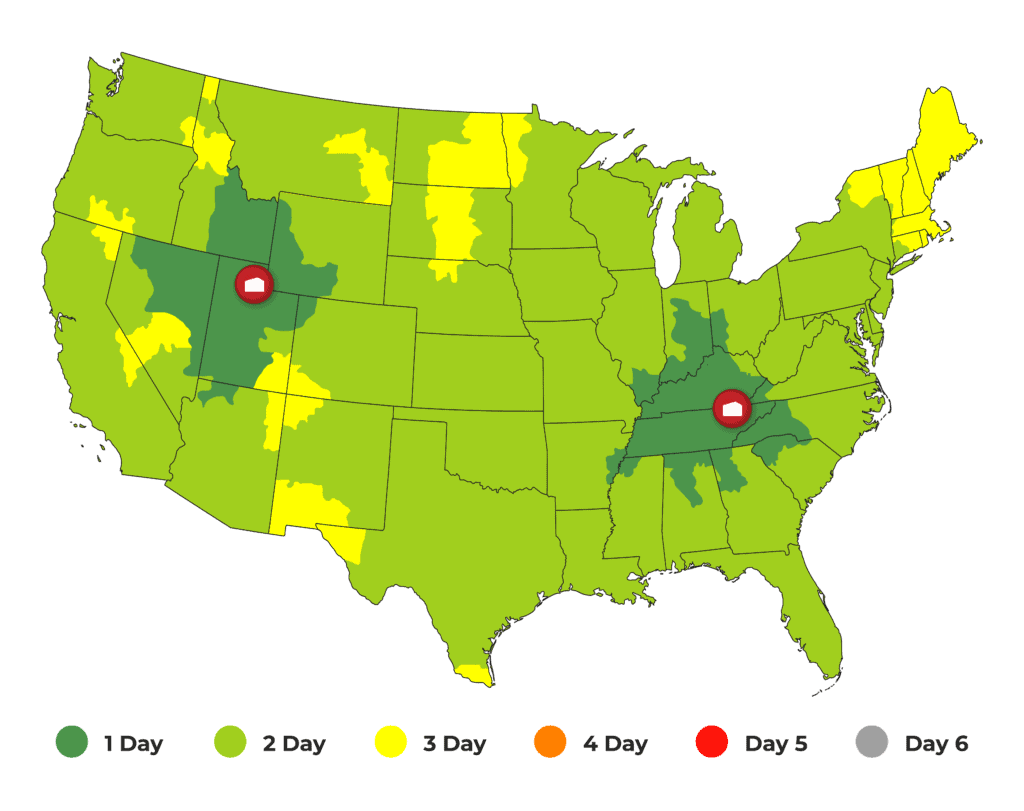
3rd-Party Logistics Services Customer Support
When something goes wrong with your operations, you need to identify it and fix it quickly. Reliable and fast customer support is critical to your eCommerce success. Ask about customer service response time when you look at new fulfillment companies.
Specialty 3rd-Party Logistics Services
Your 3rd-party logistics services company can bring added value to your business with special services. For example, kitting allows you to create sets that increase your sales and make your order fulfillment more cost-effective. Cross docking can get backorders to your customers faster and save on storage costs. Ask your eCommerce fulfillment warehouse if it can provide these or other special services to grow your business.
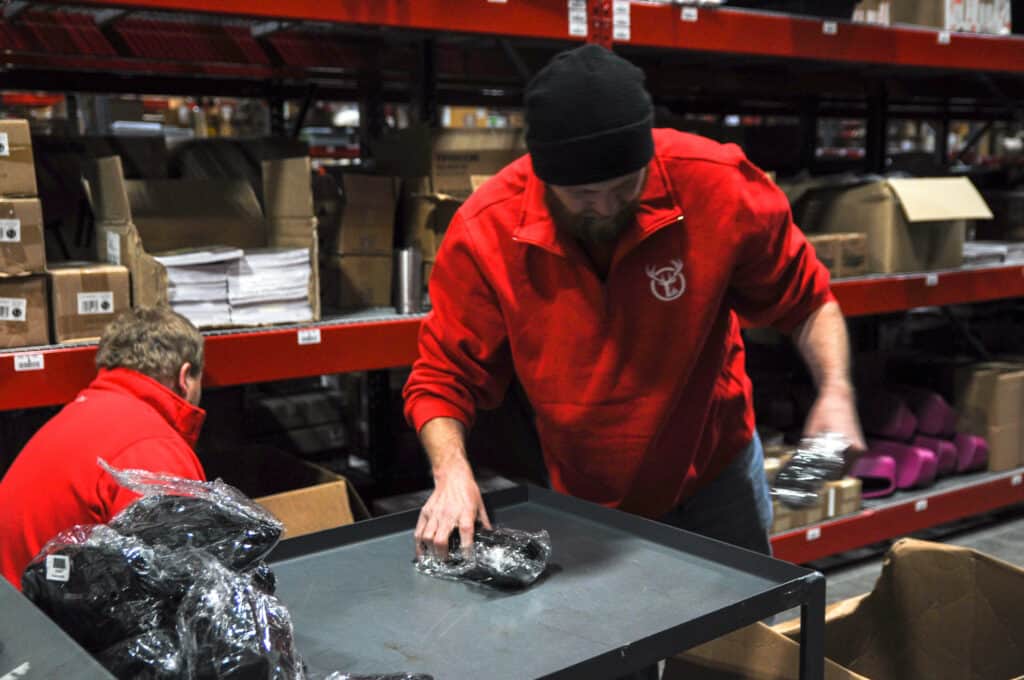
Resource For Third-Party Logistics Center Evaluation: Know What Questions To Ask
Your third-party logistics company is, in many ways, a business partner, and you need to be able to count on your 3PL partner to provide high-quality and reliable fulfillment. The health of your business depends on it.
If you were going to take on a business partner, you’d ask many questions first, so you should do the same with your 3PL. Here are a few key questions to get you started.
Ask About Security And Continuity Of Operations
Does the 3PL provide 24/7 security? Does the warehouse have backup systems for power and internet service? In other words, what steps has the company taken to provide you with uninterrupted service?
Ask About Order Fulfillment Costs
The fees for third-party logistics services aren’t the only costs of fulfillment. Ask who bears the cost of mistakes, including mis-packs and shipping errors. Does the warehouse take responsibility for lost or damaged goods (shrinkage)? The costs of mistakes can take a bite out of your bottom line. Look for a 3PL provider with service guarantees for inventory and fulfillment accuracy.
Ask About Shipping Costs
In some cases, a 3PL may have favorable contracts with major carriers. Ask about shipping costs for typical orders. Find out if the fulfillment center can save you money on shipping.
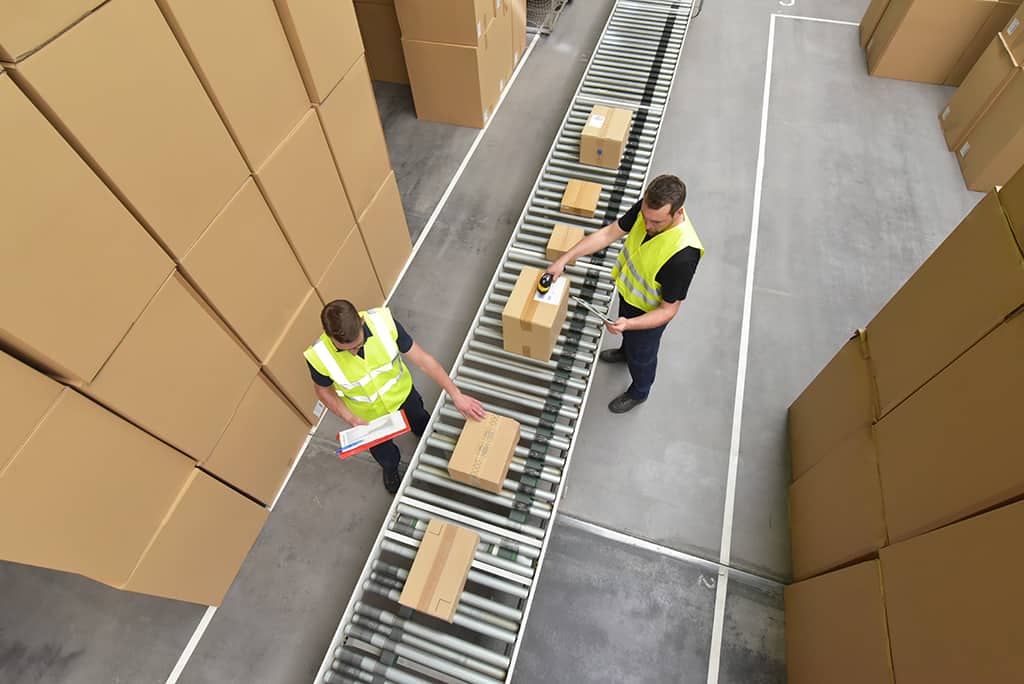
Ask About Omnichannel Fulfillment Integration
Make sure that the 3PL you choose can talk to all your eCommerce platforms. Ask about plugins, middleware, and custom APIs.
These are just a few questions you should ask prospective order fulfillment partners. To help you gather more information, we’ve created a fulfillment company questionnaire that includes a comprehensive list of topics to help you cover all the bases.
Online Reviews Of Third-Party Logistics Services Companies
When it comes to choosing a third-party logistics company, talk to clients as well as the company. Online reviews can help you decide whether a fulfillment company is right for your business.
Here are some excellent fulfillment reviews to help you get started:
In addition, look up the companies you’re considering on the Better Business Bureau website.
How Can 3PL Services Help Your ECommerce Business?
Outsourcing your fulfillment is a great way to increase the capacity and reach of your eCommerce business. You’ll be able to do more without hiring additional staff. You pay only for the services and warehouse space you need, rather than being stuck with a warehouse lease. And you gain logistics expertise to help you enhance your supply chain and take your fulfillment operations to a higher level.
Fulfillment isn’t the most glamorous part of your eCommerce business, but it is vital to brand perception. Inadequate fulfillment can cost you money and customers, while excellent fulfillment leads to positive reviews and loyal customers. Excellent third-party logistics are an engine that powers the growth of the most successful eCommerce businesses.
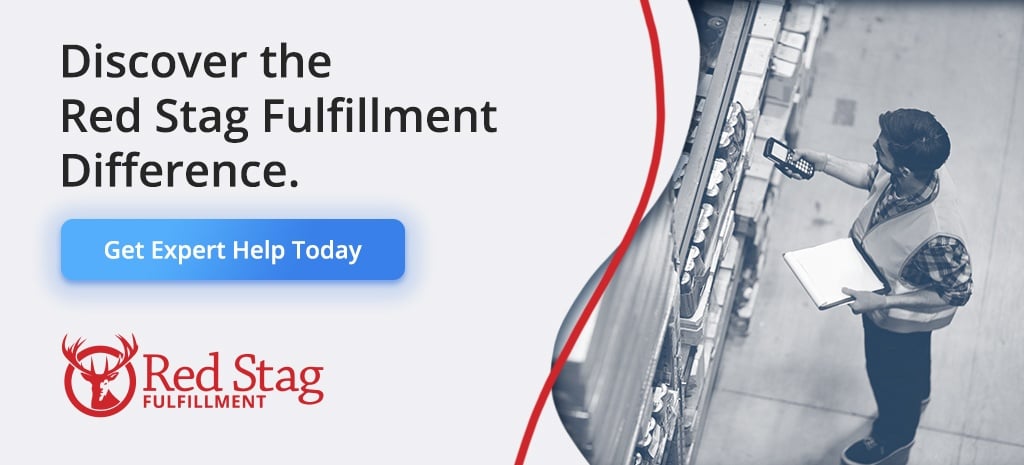
3PL FAQs
What Is A 3PL?
3PL stands for third-party logistics, also known as order fulfillment. A 3PL warehouse provides a full range of eCommerce fulfillment services, including storage, order processing, shipping, and receiving. Many 3PL warehouses also provide value-added services such as returns processing, cross docking, or kitting.
What Is 3PL Logistics?
Third-party logistics, or 3PL, is used interchangeably with fulfillment warehouse or fulfillment center. 3PL logistics services include: warehousing, inventory management, shipping, receiving, FTL and LTL freight, picking and packing, kitting, and reverse logistics (returns).
What Is A 3PL Warehouse?
A 3PL warehouse is a physical location where a fulfillment company stores products and processes and ships orders. The best 3PL warehouses are positioned in strategic areas, ideally in locations that can reach a large number of U.S. addresses in two days or less with standard shipping.
What Does 3PL Mean?
A 3PL is short for third-party logistics, which refers to a business that provides logistics services such as warehousing, kitting, shipping, returns, inventory management, and receiving.
